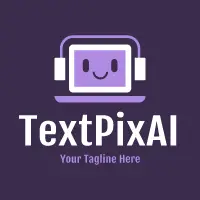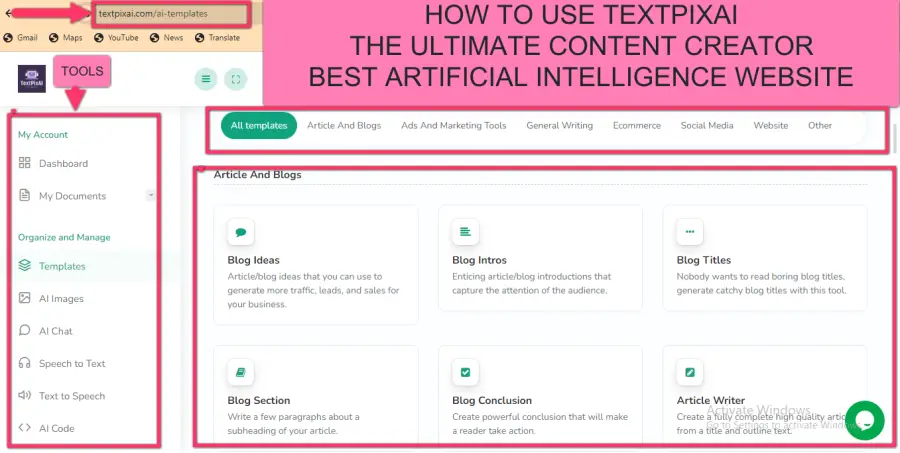AI in the Metaverse
Introduction
The metaverse is no longer a distant concept confined to science fiction; it's rapidly becoming a tangible reality. As virtual environments grow in complexity and scale, so does the role of Artificial Intelligence (AI) within them. In this article, we'll discuss AI in metaverse, we will also explain the influence of AI, its applications, the ethical considerations it raises, and the exciting prospects it holds for the future.
You may also like to read:
Defining the Metaverse
The term "metaverse" has garnered significant attention in recent years, but what exactly does it mean? The metaverse is a collective digital space where users can interact with each other and their surroundings in real-time. It's not just about immersing oneself in virtual reality; it's about creating interconnected, persistent virtual universes where people can work, play, and socialize.
The concept of the metaverse has evolved from the early days of virtual reality, driven by advances in technology and connectivity. Prominent platforms like Meta's (formerly Facebook) Oculus and Fortnite have paved the way, offering glimpses into what the metaverse could become.
The Confluence of AI and the Metaverse
Artificial Intelligence is the driving force behind the metaverse's evolution. AI adds a layer of intelligence and interactivity that transforms static virtual environments into dynamic, responsive spaces.
Enhancing User Experiences
Personalization is at the heart of AI's role in the metaverse. Through machine learning algorithms, AI tailors user experiences based on individual preferences and behaviors. Whether you're exploring a virtual museum or engaging in a multiplayer game, AI ensures that your interactions are uniquely suited to you.
AI-Driven Content Creation
In the metaverse, content is king, and AI is the content creator's ally. AI-generated narratives, characters, and environments enrich the metaverse with an ever-expanding array of possibilities. AI can generate realistic landscapes, design intricate game levels, or even write compelling stories that adapt to each user's choices.
Dynamic Virtual Environments
The metaverse is not static; it's a living, breathing digital ecosystem. AI powers the metaverse's dynamic nature by simulating real-world physics, weather, and other elements that make virtual spaces feel more immersive. AI-driven NPCs (non-player characters) add complexity to virtual worlds, responding intelligently to user actions.
Applications of AI in the Metaverse
The applications of AI in the metaverse are vast and diverse, spanning various domains and industries.
Entertainment and Gaming
Entertainment is at the forefront of metaverse adoption. AI generates immersive game environments, tailors gameplay to individual preferences, and even creates lifelike characters that evolve with each interaction. As a player, you're no longer just a spectator; you're an active participant in a dynamic digital narrative.
Social Interaction and Communication
The metaverse is more than just games; it's a space for socializing and connecting. AI-powered avatars and chatbots provide lifelike interactions, making it feel as if you're meeting real people in virtual spaces. These AI-driven entities adapt to your conversational style and can provide personalized recommendations and assistance.
Education and Training
Education enters a new dimension in the metaverse. AI-powered environments offer immersive, interactive learning experiences. Imagine a history class where you step into ancient civilizations or a physics lesson where you interact with virtual experiments. AI tutors provide personalized guidance, adapting the curriculum to each student's needs.
Virtual Commerce and Economy
E-commerce transcends traditional online shopping in the metaverse. AI-driven virtual marketplaces offer unique goods and experiences. AI algorithms analyze user preferences to recommend products, and virtual assistants guide shoppers through immersive, interactive stores. The metaverse economy is real, with virtual assets and currencies.
Healthcare and Therapy
The metaverse extends its reach to healthcare, offering virtual consultations and therapy sessions. AI-driven virtual healthcare providers can diagnose medical conditions, offer mental health support, and guide patients through treatment plans. It's healthcare delivered in a personalized, accessible virtual environment.
Challenges and Ethical Considerations
As AI takes center stage in the metaverse, it raises several critical challenges and ethical considerations.
Privacy and Data Security
In a world where AI customizes every interaction, concerns about privacy and data security are paramount. AI relies on vast amounts of user data to personalize experiences. Ensuring that user data is protected and used responsibly is a pressing challenge.
AI-Generated Content and Misinformation
AI-generated content, while impressive, can also be a source of misinformation and deception. AI-written articles, videos, or even virtual news anchors may blur the lines between fact and fiction. Addressing the accuracy and authenticity of AI-generated content is a critical ethical concern.
Digital Addiction and Mental Health
The immersive nature of the metaverse can be addictive, potentially leading to issues like digital addiction. Ensuring that users maintain a healthy balance between virtual and real-world experiences is essential. AI can play a role in providing reminders and encouraging breaks.
Diversity, Equity, and Inclusion
Inclusivity in the metaverse is a challenge that requires careful consideration. AI-driven avatars and interactions should be designed with diversity and accessibility in mind, ensuring that the metaverse is a welcoming space for all.
The Future of AI in the Metaverse
The future of AI in the metaverse is teeming with possibilities and potential advancements.
Advancements in AI Algorithms and Hardware
AI algorithms continue to evolve, becoming more sophisticated and capable. Faster processors, improved machine learning models, and enhanced natural language processing will enable even more immersive and responsive experiences in the metaverse.
Expanding into Various Sectors and Industries
While entertainment and gaming currently dominate the metaverse landscape, its reach will extend into various sectors. Education, healthcare, remote work, and countless other industries will leverage the metaverse's immersive capabilities, enhancing productivity and accessibility.
Ethical Guidelines and Regulatory Frameworks
As the metaverse expands, the need for ethical guidelines and regulatory frameworks becomes imperative. Collaborative efforts among industry stakeholders, policymakers, and experts are essential to ensure responsible AI development and metaverse governance.
Key Players and Platforms
The metaverse is a rapidly evolving space with a multitude of key players and platforms.
Tech Giants and Startups
Tech giants like Meta (formerly Facebook), Google, and Microsoft are investing heavily in metaverse development. Meanwhile, innovative startups are emerging, offering unique contributions and perspectives to the metaverse ecosystem.
Prominent Metaverse Platforms
Platforms like Meta's Horizon Workrooms and Roblox are already demonstrating the potential of the metaverse. Their AI integrations are shaping how users interact, collaborate, and create in virtual spaces.
Conclusion
In conclusion, the metaverse is not just a virtual playground; it's a dynamic, interconnected digital universe with profound implications for our lives. Artificial Intelligence is the engine driving the metaverse's evolution, enhancing user experiences, creating dynamic content, and shaping virtual environments.
As we embrace the metaverse's potential, it's essential to address the challenges it presents—privacy, misinformation, digital addiction, and inclusivity. Responsible AI development, ethical guidelines, and regulatory frameworks will be critical in shaping the metaverse's future.
The metaverse represents a convergence of technology, creativity, and human interaction on an unprecedented scale. As we navigate this new digital frontier, it's clear that AI will play an ever-expanding role in shaping our virtual worlds and, by extension, our reality.
References
- Meta. (2021). Horizon Workrooms - Collaborate in VR.
- Roblox. (2021). Roblox: The Metaverse.
- Virtual Reality Society. (2021). What is the Metaverse? [https://www.vrs.org.uk/virtual-reality/what-is-the-metaverse.html].
- The Wall Street Journal. (2021). How Facebook Plans to Take Over the Internet.
- World Economic Forum. (2021). What is the Metaverse and Why Does It Matter?.








